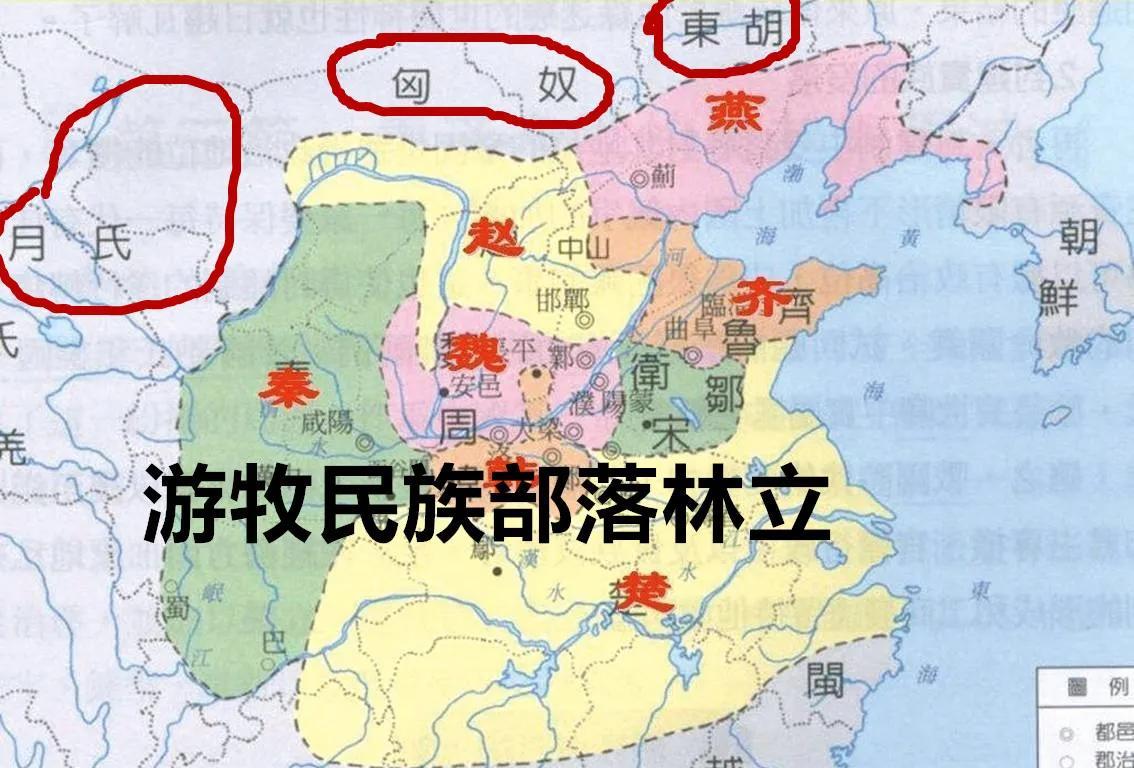After the three families of Han Zhao and Wei were divided into Jin, the seven heroes of China competed for hegemony, of which the border of the three kingdoms bordered the Rongdi tribe.
First, the State of Qin, west of Long, there are tribes such as Zhu, Qirong, Zhai, and so on, and north of Qi, Liang, Jing, and Qi, there are tribes such as Yiqu, Dali, Wushi, and Shuyan;
The second is the Zhao State, and there are tribes such as Lin Hu and Lou Fu in the north;
The third is the Yan kingdom, and there are tribes such as Donghu and Shanrong in the north.

These tribes lived scattered in valley streams and had their own rulers, and although there were often more than a hundred tribes gathered together, none of them could unite the tribes.
The Qin-Yiqu department built a city to defend itself, while the Qin state slowly encroached on it, and when it came to The Huiwang, it captured twenty-five of its cities. When it came to King Zhaoxiang, Empress Xuan lured the King of Yiqu to Ganquan and killed him, and then immediately sent troops to attack Yiqu, destroying the tribe, and building the Great Wall in Longxi, Beidi, Shangjun and other places to resist the invasion of the Hu people in the northwest.
Zhao - Zhao Yong, the king of the State of Zhao, led an army to break through the tribes such as Lin Hu and Lou Fu in the north, and from the bottom of the Yin Mountains to Gaoque, built the Great Wall, established fortresses, and set up counties such as Yunzhong, Yanmen, and Dai County.
Qin Kaiyin, a general of the Yan state, had been a hostage in Donghu and won the trust of Donghu, and after returning to the Yan kingdom, he led an army to attack Donghu, breaking the Eastern Hu army and forcing it to retreat more than a thousand miles north. The State of Yan then also built the Great Wall along the line from Zaoyang to Xiangping, and set up shanggu, Yuyang, Youbeiping, Liaodong and other counties to resist the Hu people's attacks.
It was not until the end of the Warring States period that the Xiongnu tribes began to grow stronger. The State of Zhao sent Li Muzhen to defend the north, and Li Muyin endured for many years, and finally broke the enemy's troops, slaughtered more than 100,000 Xiongnu horses, took advantage of the victory to destroy the Hu clan north of Daidi, attacked Donghu, and made the Linhu tribe surrender. The Xiongnu fled with their remnants and did not dare to approach the border of the Zhao state for more than a decade.